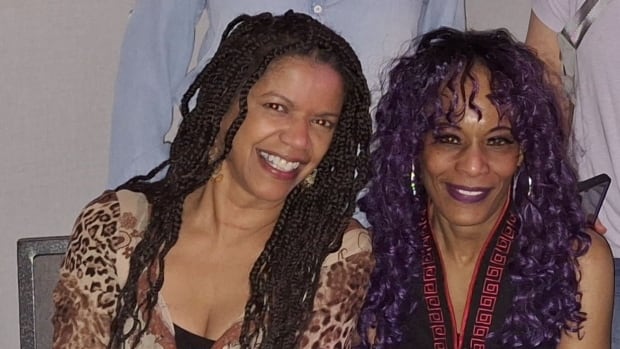
A Halifax doctor has stepped up to help a local woman who’s been stuck in limbo when it comes to getting a kidney transplant.
Geri Mendes has end-stage kidney disease, and even though her family and friends want to donate, they’ve been told they must have a family doctor or a nurse practitioner.
On Monday, hours after she and her longtime friend, Casey Jones, shared their frustrations on CBC Radio’s Information Morning Halifax, a doctor called Mendes offering to help.
“Isn’t this what Nova Scotians do when we hear someone’s in trouble?” said Dr. Maria Alexiadis, chief of the department of family medicine in Nova Scotia Health’s central zone. “We try to reach out to help.”
In addition to Jones, Mendes’s son and Jones’s daughters have all inquired about donating a kidney, and were told they’d need a doctor first. That roadblock has prevented them from seeing if they could be a match for organ donation.
Information Morning – NS10:25Good news for a Halifax woman whose potential kidney donors need doctors
Yesterday we heard from Geri Mendes, who is waiting for a kidney transplant. None of her potential donors have family doctors, so they can’t get tested to see if they’re a match. After her interview with us, Geri got a phone call from a doctor who is hoping to help. Here’s an update.
As of early October, there were more than 145,000 people on the waitlist for a family practice in Nova Scotia.
Jones said she was told that a doctor is needed for followup care after an organ donation — a requirement that took Mendes by surprise, too.
She said she wasn’t told by anyone on her care team that the lack of a family doctor could be an obstacle for a donor.
“I thought that this was going to be easy,” Mendes said. “Somebody wants to donate … and then I kind of was taken back by the whole thing.”
‘Let’s do this’
After hearing from Alexiadis, Mendes shared the news with her friend of more than 45 years.
“I talked to Casey and she’s just like, ‘Let’s do this,'” said Mendes. “She’s been waiting.”
Jones said it’s been difficult not to be able to help Mendes, whom she calls her “ride-or-die” friend.
“She loves to travel, she loves her dogs, so the thought of Geri [unable] to do those things is scary for me, and I know it is scary for her family,” said Jones.
“Everybody that knows Geri, loves Geri. We don’t want to see anything happen to her.”
A spokesperson for Nova Scotia Health said in a statement that while primary care providers are doing all they can to take on interested donors, work is being done to formalize and improve the process.
Alexiadis said that work will ensure possible donors get appointments with a physician who can conduct an assessment.
“It will be reliable because it’ll be an actual process in place,” said Alexiadis.
Until that process is in place, Nova Scotia Health said people looking to donate who don’t have a primary care provider can contact 811 to discuss their situation.